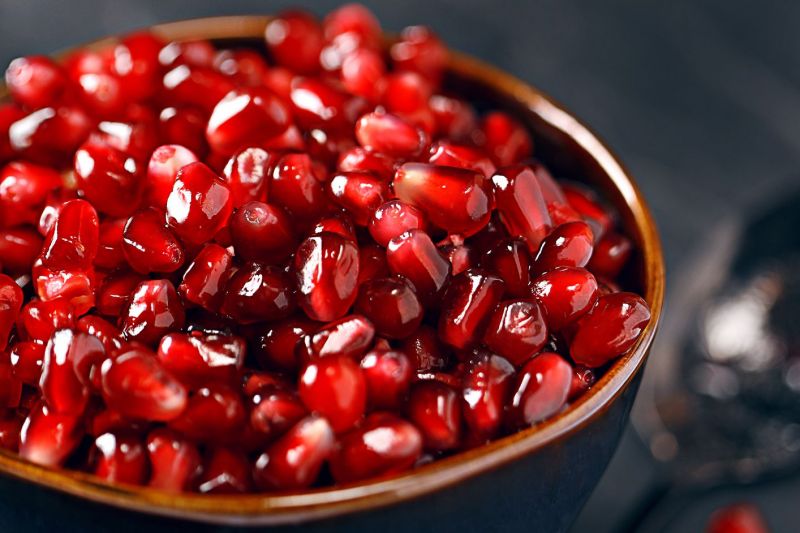
Pomegranate is a delicious fruit known for its juicy seeds and potential health benefits. However, there are certain things to keep in mind when consuming it to avoid any adverse effects or interactions with medications.
Pomegranate is rich in antioxidants like flavonoids and anthocyanins, which are beneficial for heart health. They help in reducing oxidative stress and lowering bad cholesterol (LDL), while increasing good cholesterol (HDL), thereby supporting heart health.
Studies suggest that pomegranate may also aid in managing arthritis by reducing inflammation and oxidative stress in the body. This can be particularly helpful for individuals with rheumatoid arthritis.
Additionally, pomegranate seed extract and fruit extract have protective properties that support both male and female fertility by protecting embryos against oxidative stress.
While pomegranate is generally safe, it's important to consume it in moderation. Excessive intake can lead to side effects such as diarrhea, and some individuals may experience allergic reactions like itching and swelling.
Here are some important tips to consider when consuming pomegranate:
Avoid Mixing with Sweet Fruits: Pomegranates are sub-acidic fruits and should not be mixed with sweet fruits like bananas, as this can hamper digestion.
Avoid Mixing with Warfarin: Pomegranate may interact with Warfarin, a blood thinner, potentially increasing the risk of blood clotting. It's important to consult a healthcare provider if you are taking Warfarin.
Avoid Mixing with Nitrendipine: Nitrendipine is a calcium channel blocker used to treat hypertension. Consuming pomegranate juice frequently may reduce the drug's metabolism in the intestine, affecting its effectiveness.
Avoid Mixing with Statins: Statins are medications used to lower LDL cholesterol. While rare, combining pomegranate with statins may lead to rhabdomyolysis, a condition where muscle tissue breaks down, potentially causing kidney damage.
To sum up, Pomegranate is a nutritious fruit with numerous health benefits, but it's essential to be mindful of these tips to ensure its safe consumption, especially when dealing with specific health conditions and medications.
Read More:
What Are the Best Healthy Foods to Eat on an Empty Stomach?
Avoid These Empty Calorie Foods to Stay on Track with Your Diet Goals
Cool Down with Mango Mastani: The Ultimate Summer Drink, Try Now